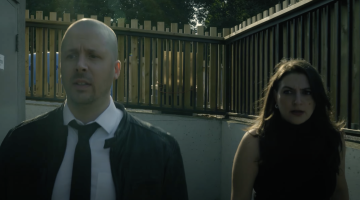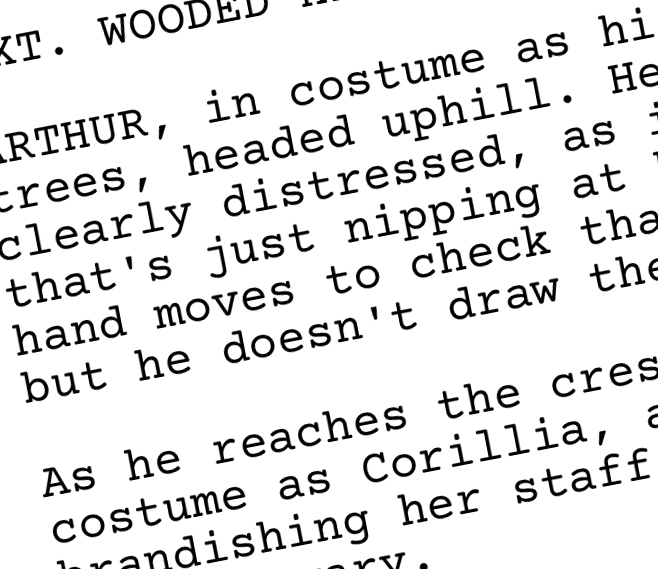Once Julian Stamboulieh brought me on board for our then-unnamed web series about LARPers, we agreed that we’d start work separately on our tasks. He got together with Benjamin Warner (our producer) and started to figure out financing and logistics, and I retreated to my computer to write. I had a story outline, a character breakdown, and a penchant for not sleeping at appropriate hours, so I was all set.
Set until crippling doubt, that is.
If a series is a tower, the script is the foundation. Everything rests on it. There are so many elements that have to work if a project going to be any good, but the concept and the script come first. If they suck, you pretty much guarantee that everyone else’s hard work gets wasted. I needed to get this script done and I had limited time—after all, we were going to shoot in a few months, while the weather was still warm. (Montreal winters aren’t known for being particularly comfortable.)
So, what do you do in that situation?
- Just write. You’ve got to get stuff on page. Stop worrying if it’s garbage, because it’s way more useful to get feedback from someone if they can actually read something. I learned pretty quickly that telling someone about what you’re writing just doesn’t work as well as handing them a draft—even if I wasn’t pleased with it.
- Throw out what doesn’t work. Once things are on page, then you can start throwing things out. Don’t hold on to something for too long. You can spend way more time trying to fix a page of dialogue than simply cutting it and starting over. There were nights where I’d write thousands of words and then get rid of pretty much all of them. These were still productive nights. Perhaps they weren’t as satisfying, but by throwing stuff out I was figuring out what didn’t work, so that I could reach the stuff that did.
- Throw out your favourite stuff. This is the hard part, but it’s absolutely critical: you will get attached to a line or a scene, and you’ll start to change other things to make that amazing writing work even better. Resist the urge. What’s important is the overall script, not your favourite part, and if you find yourself trying to justify something because you think it’s cool, seriously consider cutting it. There’s a ton that I absolutely loved in the drafts that never made it into the final shooting script. That’s okay, though. Makes for a better product overall, and I can always try to use ideas for later scripts.
- Flow. The original story breakdown for LARPs: The Series had to be abandoned about two days in, because it wasn’t going to work. The basic stories remained intact, but where and when events happened shifted around constantly. Had I remained rigid to what we’d decided when we started, I would have spent too much time trying to make that work instead of focusing on the actual dialogue and story. Better to change and adapt over time.
- Back. Stuff. Up. I never experienced a crash while working on LARPs: The Series. I didn’t lose a single byte of data. If I didn’t have backups, though, and something awful did happen, the whole series would’ve been screwed. Back your stuff up. Write in the cloud. Do whatever it takes to safeguard your data.
I got the first two episodes written to a point where I was satisfied with them, and we went on to use those for casting. I may be a writer, but I’m an actor by training, and auditions are just about the most horrible things on the planet—even if you’re auditioning for a role in a web series you wrote yourself.
Writing two episodes were going to have to be enough of a victory to keep me going.










No Comment